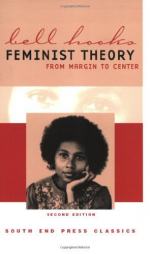
|
| Name: _________________________ | Period: ___________________ |
This test consists of 5 short answer questions and 1 (of 3) essay topics.
Short Answer Questions
1. How should feminists behave towards consumerism, according to the author?
2. Which one of the following ideas is not mentioned by the author in her discussion of how feminist-oriented change can actually come about?
3. In addition to gender and violence, what major aspect of violence does the author discuss in this chapter?
4. What was the early feminist belief about creating change according to the author?
5. What ideas about parenting does the author initially discuss?
Essay Topics
Write an essay for ONE of the following topics:
Essay Topic 1
Essay on Ch. 2: Definition of feminism.
In Ch. 2, the author advocates ending sexist oppression as a better definition of feminism.
1) How does the author define sexist oppression and how does ending sexist oppression differ from previous definitions?
2) What social institutions (e.g. the family) will potentially be changed by this new definition of feminism?
3) Does the author advocate a more comprehensive approach to fighting all forms oppression in general? How?
Essay Topic 2
Essay on Ch. 7: Women and work.
From the beginning of the feminist movement, work has been an important issue in feminism. In this paper you will discuss early feminist views of work, as well as the idea of a gendered division of labor (e.g. housework as women's work, and therefore as devalued).
1) Describe traditional beliefs about work and gender. What kind of work was seen as men's work and what kind of work was seen as women's work? Do we still see these ideas reflected in contemporary society?
2) Quoting the text, discuss early feminist views of housework and of work outside the home. Does the rejection of housework by women reflect society's devaluation of so-called "women's work."
3) What is the author's critique of this early view, e.g. how is the early feminist idealization of work outside the home connected to traditional beliefs about success?
4) How can changing attitudes about work in and outside of the home assist in addressing the imbalances perpetuated by traditional, gender-biased beliefs?
Essay Topic 3
Essay on Ch. 10: Motherhood.
In Ch. 10, the author discusses views on motherhood, both feminist and traditional.
1) Describe traditional beliefs about motherhood mentioned by the author.
2) Next, describe and discuss early feminist reactions to motherhood.
3) Do early feminist beliefs and reactions concerning motherhood challenge and change, or simply reject traditional beliefs?
|
This section contains 520 words (approx. 2 pages at 300 words per page) |

|




